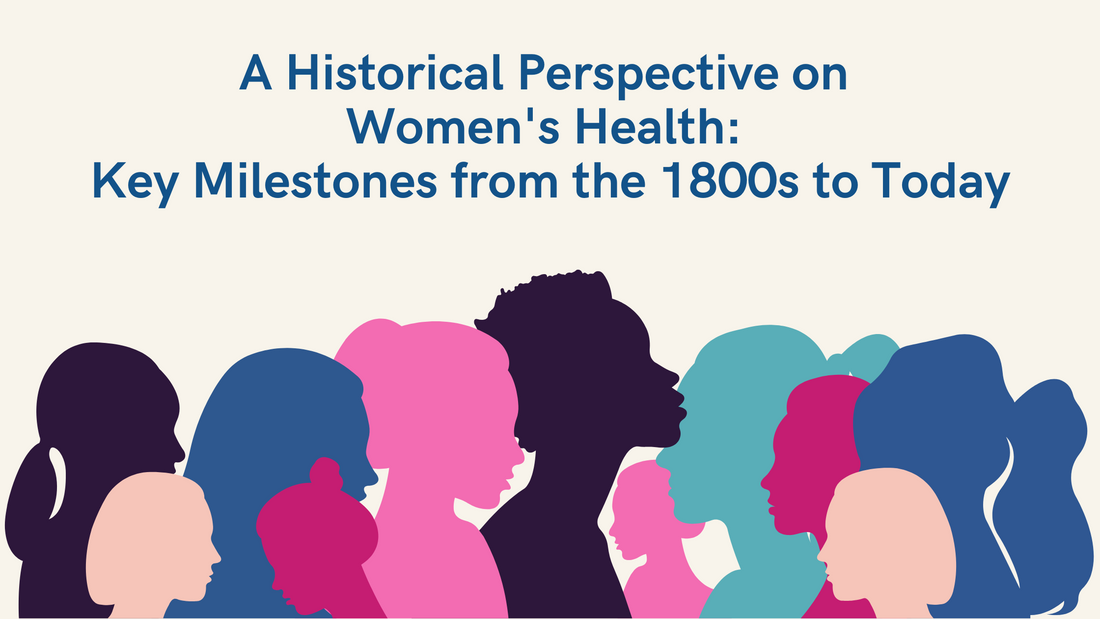Ever wondered what the journey of women's health looked like before we could simply Google our symptoms or have open conversations about our bodies? Well, buckle up, because we're about to embark on a time-traveling adventure, exploring the rollercoaster ride of women's health from the 1800s to today. From the days when 'hysteria' was a medical diagnosis (yes, really!) to our current era of digital health and empowerment, we've come a long way, y'all. So, let's dive into the fascinating and inspiring history of women's health.
The 1800s: The Dark Ages of Women's Health
In the 1800s, the history of women's health was a topic shrouded in mystery and taboo. The medical community, dominated by men, often dismissed women's health issues, attributing them to "hysteria" or "nervous conditions." Women were discouraged from discussing their health, especially reproductive health, leading to a lack of understanding and misinformation. It was a time when corsets were more researched than cramps (hello Bridgerton)!
During this time, home remedies and traditional medicines were the norm in women's health care. Women relied on herbs, rest, and advice passed down through generations to manage their health. The concept of a "female doctor" was almost unheard of, and women's health was often sidelined in favor of more "serious" medical issues.
The Early 1900s: The Dawn of Understanding
The early 1900s marked a turning point in the history of women's health. As the field of medicine advanced, so did the understanding of women's bodies. The establishment of gynecology as a medical specialty played a significant role in this shift.
During this time, the first wave of feminism also played a crucial role in advocating for women's health. Women began to demand better treatment and understanding from the medical community. This period also saw the development of the first birth control clinics, despite the controversy they sparked.
The Mid-1900s: The Birth Control Revolution
The mid-1900s brought about a significant milestone in women's health - the introduction of the birth control pill. Approved by the FDA in 1960, the pill gave women unprecedented control over their reproductive health.
This era also saw the rise of women's health activism. Women began to demand better research, better treatment, and better understanding of their bodies. The women's liberation movement of the 1960s and 70s brought issues like reproductive rights and equal access to healthcare to the forefront of public consciousness.
It was a time of empowerment and change, like a medical version of the "Roaring Twenties."
The Late 1900s: The Rise of Women's Health Activism
The late 1900s saw a surge in women's health activism. It was like the medical community finally got the memo - women's health matters! Crazy, I mean who knew?
The establishment of the National Women's Health Network in 1975, the inclusion of women in clinical trials in 1993, and the focus on diseases like breast cancer and osteoporosis marked this era in the history of women's health.
This period also saw the development of new treatments for conditions like endometriosis and PCOS, and a greater understanding of women's mental health. The stigma around discussing women's health began to fade, replaced by open conversation and advocacy.
The 2000s to Today: The Era of Empowerment
Today, we live in an era of empowerment when it comes to women's health. Women's health is a topic of open discussion, research is more inclusive, and the understanding of women's bodies is better than ever.
The rise of digital health has made information and resources more accessible. Women can now track their menstrual cycles, access telehealth services, and connect with health professionals at the click of a button.
However, challenges remain in the field of women's health. Access to healthcare is still a significant issue, particularly for marginalized communities. Conditions like endometriosis and PCOS are still under-researched, and women's mental health continues to be a critical concern.
As we look to the future of women's health, it's clear that our journey isn't over. We must continue to advocate for women's health, push for more research, and ensure that every woman has access to the care she needs.

